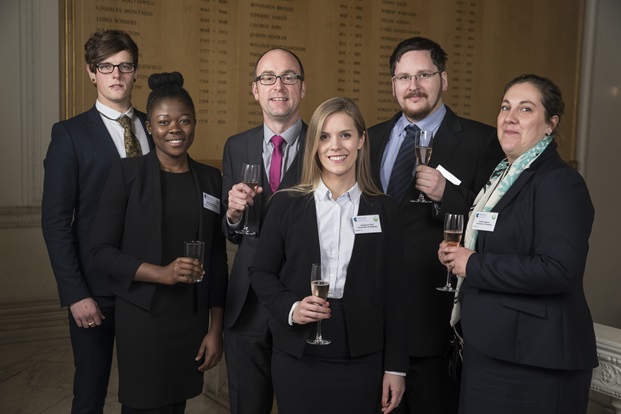Case Study Dr Steph Bull

For Dr Stephanie Bull, taking part in the YES competition was not so much about finding a route out of academia and learning how to be an entrepreneur as it was about improving her understanding of what makes a complex organisation tick.

When Stephanie Bull decided to take part in the YES competition, she was nearing the end of her PhD at the University of Reading. Having particularly enjoyed the aspects of her studies that were less lab-based, she was keen to make the most of her remaining time as a PhD student by exploring what opportunities the university could offer in terms of training outside of her area of expertise.
“Professional training can often feel like a bit of a tick-box exercise; something that you end up doing in order to put it on your CV,” she says. “But the YES competition was different, in that it was offering an opportunity to develop highly transferable skills in a whole new area.”
Despite feeling apprehensive about taking part in the competition without already having a team in place or any firm business idea in mind, Stephanie was reassured by the level and quality of support that was available from Reading’s Knowledge Transfer Centre (KTC).
“The support we received from the KTC was fundamental – from bringing together the team and helping us get into the right mindset for the competition, to introducing us to some crucial business concepts and helping us come up with a viable idea,” she explains. “This meant that by the time the competition started we’d already begun getting our business plan together, and when we were talking to the industry experts we weren’t working from scratch.”
In addition to the support received from the KTC, Stephanie and her team were offered bespoke coaching by experts from Reading’s Henley Business School to help with various technical aspects of their business plan, including finance, intellectual property, and presentation – skills that have since proved to be very useful in her current role as a lecturer.
“We got a lot of support around presentation skills, including how to pitch ideas as a group,” she says. “I’d always enjoyed presenting in an academic context, but I was surprised by the degree to which taking part in YES improved my presentation skills. Even though pitching a commercial product is totally different to lecturing, some aspects are very transferable.”
While Stephanie has remained in the world of academia as an education professional, she now co-convenes an undergraduate module focused on bringing new products to market, which involves training her students in exactly the skills she herself learned through YES. She continues to be a passionate advocate for the benefits of extra-curricular training, especially around entrepreneurship and other business-focused skill development.
“When you’re a student, it’s very easy to become so focused on your academic output that you forget there’s this huge wealth of expertise and training available to you at university that isn’t necessarily available to access elsewhere,” she says. “Learning how to understand and navigate the motivations and nuances of the business structure in which you are working enables you to be a more active participant in that structure, so if you don’t make the most of it, you’re missing out on some fantastic opportunities for personal and professional growth.”
